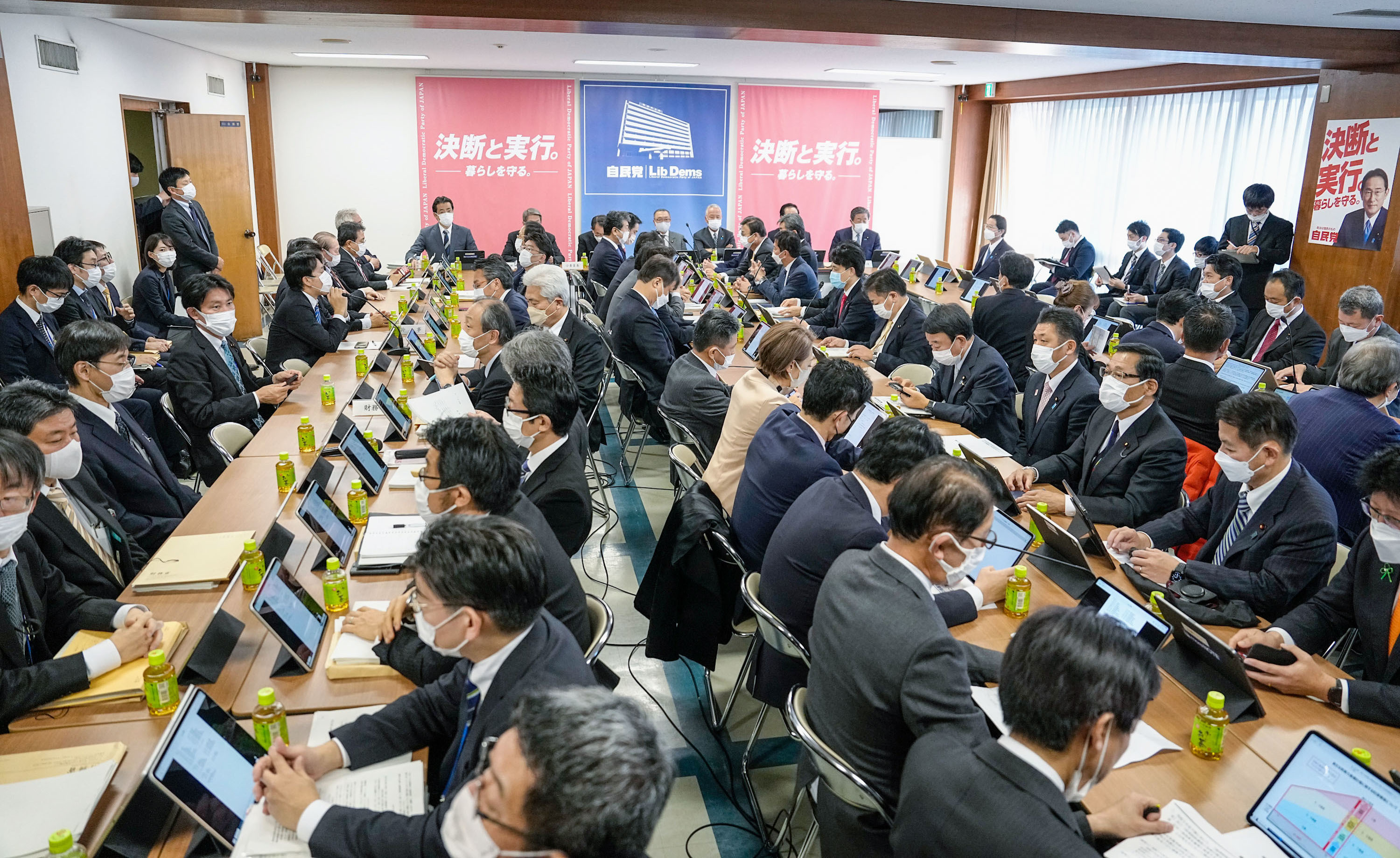
- Article
- Macroeconomics, Economic Policy
Policy Priorities for the Coronavirus Recovery
June 18, 2020
Japan’s COVID-19 state of emergency is over, but the long process of recovery has only begun. Research Director Keichiro Kobayashi, recently tapped to serve as an economic advisor on the government’s coronavirus task force, shares his views on the top policy priorities for this critical phase.
* * *
On May 25, the Japanese government lifted the COVID-19 state of emergency for all remaining areas of Japan, including Tokyo, and adopted a revised set of Basic Policies for Novel Coronavirus Disease Control. The latest policies call for a gradual relaxation of guidelines on social distancing and the use of public and commercial facilities with the aim of increasing levels of activity while keeping the epidemic under control. But much remains unclear about the government’s roadmap to economic recovery. We talked to Research Director Keiichiro Kobayashi, who was recently tapped to contribute his economic expertise to the advisory committee on the government’s coronavirus response.
——The Japanese government recently lifted the coronavirus state of emergency, under which individuals and businesses have been called on to curtail their activities in various ways. How does this change the way we’re expected to behave in the community?
KEIICHIRO KOBAYASHI: The number of new cases may be declining at the moment, but a second wave of infections is always possible unless individuals and businesses continue to act with caution and restraint.
——What do you think should be the government’s top priority in terms of getting the economy moving again?
KOBAYASHI: Before we can make any real progress toward economic recovery, we need to address ongoing anxieties about the COVID-19 epidemic. The way to do that is by strengthening our healthcare-delivery and testing systems. We need to act quickly, too, bearing in mind that flu season will be here in the fall, and that we’ll have to start letting people into the country from overseas well in advance of the Olympic Games next summer. With this in mind, the central and local governments should move as quickly as possible to build our healthcare-delivery capacity, with a focus on in-patient treatment of those with moderate to severe COVID-19, and to expand our testing capacity.
——In Japan, there’s been a lot of resistance to widespread testing on the grounds that people will flood into hospitals and overwhelm the healthcare system. How do you respond to those concerns?
KOBAYASHI: That’s a crucial point to consider when building up our healthcare and testing systems to cope with this public-health crisis. Reducing the strain on our hospitals and healthcare providers is key, and our capacity building has to be oriented to that goal. As I see it, coronavirus testing and the isolation of people with mild or no symptoms can both be accomplished outside of the existing healthcare apparatus with the help of private-sector personnel, facilities, and funding. We should make it a national goal to build our daily testing capacity to between 100,000 and 200,000 by fall. I’ve proposed that the Prime Minister’s Office establish a separate task force for that purpose, instead of leaving all testing decisions to the bureaucrats at the Ministry of Health, Labor, and Welfare.
——Why is an economist like yourself making recommendations about things like healthcare delivery and coronavirus testing?
KOBAYASHI: First, as I said, I believe we have to calm people’s fears about the epidemic in order to normalize the economy, and for that we need to build up our healthcare and testing capacity. The other reason is that a robust and widespread testing program is the only way to gather the data needed to accurately assess the status of the epidemic at any given time so as to make informed economic policy decisions. It’s vital that we step up testing as a tool for evidence-based policymaking.
——Where would you put the policy emphasis in terms of new or expanded support for struggling industries and the economy as a whole?
KOBAYASHI: To reduce the risk of infection, our society is going to be relying increasingly on online platforms for our business and social interaction, including education and healthcare. In such high-contact industries as hospitality, tourism, and transportation, this pressure could cause a major structural shift. Faced with new demands regarding social distancing and contact with customers, many businesses are going to find it impossible to sustain sales at pre-pandemic levels, and entire industries could fall into decline. Under the circumstances, I think the government needs to smooth the transition by providing more grants and financial incentives for companies that want to switch industries, as well as for mergers and acquisitions.
——What’s your position on additional cash benefits to individuals and small businesses now that the state of emergency is over?
KOBAYASHI: I believe we need to increase the level of relief to hard-hit individuals and small businesses and extend the benefits as well. Ultimately, I think we’ll have to start thinking in terms of a permanent and comprehensive safety net, such as a basic income, that guarantees a certain minimum to everyone, regardless of their work style or form of employment.
——So, you’re recommending substantial outlays to bolster the healthcare system and increase testing, as well as additional benefits for individuals and small businesses and a basic income. How is the government going to pay for all that?
KOBAYASHI: For now, we’ll have no choice but to rely on government bond issues. It’s going to be a setback in terms of fiscal retrenchment, but this is an emergency, after all. If the government stints on relief and rescue measures now, it will worsen and prolong the recession, and government finances will just deteriorate further. In my view, the government should provide all the financial assistance necessary to sustain people during the crisis and its aftermath.
——How do you suggest that Japan deal with the coronavirus debt over the long term?
KOBAYASHI: Obviously, we’ll need to get serious about fiscal retrenchment once this is all behind us. But since this is a global crisis, it seems to me that Japan should take account of the pace at which other countries are working to reduce their deficits. There’s going to be a need for coordination and cooperation, and Japan would do well to take the initiative in calling for an international body for that purpose.


